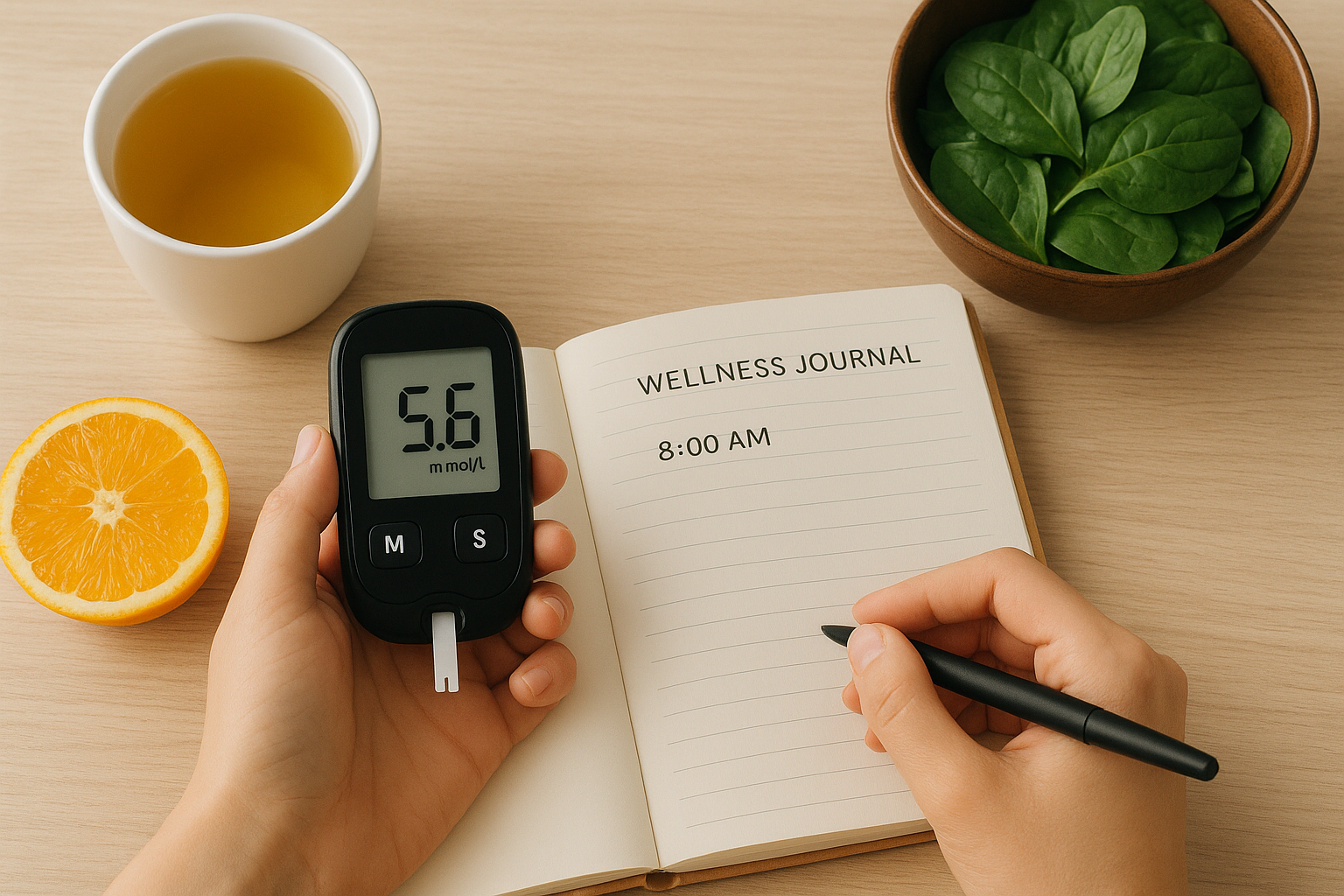
Balanced insulin levels are key for steady energy, fat metabolism, and hormonal balance. Achieving an ideal fasting insulin level of 3–4 µIU/mL supports metabolic health and resilience. These simple, effective habits help your body become more insulin-sensitive naturally.
1. Begin Each Meal with Vegetables
Start your meals with fiber-rich vegetables to slow glucose absorption and promote a healthy insulin response. Aim to fill half your plate with colorful, non-starchy veggies.
2. Prioritize Protein
Aim for about 1 gram of protein per pound of your ideal body weight daily to support muscle health and stable blood sugar levels, improving insulin sensitivity.
3. Include Healthy Fats
Add sources like avocado, olive oil, Balance Oil, ghee, nuts, seeds, or fatty fish at each meal to keep blood sugar and hunger stable.
4. Create Clear Meal Windows
Eat each meal within a 60-minute window and drink only water between meals. Even “healthy” drinks or chewing gum can trigger insulin release.
Example: Start breakfast at 8:00 AM, finish by 9:00 AM, then have only water until your next meal.
5. Optimize Fiber
Aim for 35–50 grams of fiber daily from a wide range of plant foods. Think “eat the rainbow”—diversity supports both your gut and insulin sensitivity.
6. Eliminate Processed Carbohydrates
Avoid bread, crackers, cookies, pastries, cereals, and packaged snacks that spike blood sugar. Choose whole, real foods instead.
7. Add Herbs & Spices
Cinnamon, turmeric, ginger, garlic, and fenugreek can naturally enhance insulin sensitivity and add flavor to your meals.
8. Drink Green Tea
Organic green tea supports metabolic health and has mild insulin-balancing and antioxidant effects. Aim for 1–3 cups daily.
9. Use Apple Cider Vinegar Before Meals
Mix 1 teaspoon to 1 tablespoon of apple cider vinegar (ACV) in 8 oz of water about 5–20 minutes before eating. Drink through a straw or rinse your mouth afterward to protect tooth enamel.
10. Eliminate Processed Sugar
Avoid sweetened drinks, desserts, syrups, and hidden sugars in packaged foods to prevent insulin spikes.
11. Prioritize Quality Sleep
Poor sleep raises cortisol and insulin resistance. Aim for 7–9 hours of nightly sleep with consistent bed and wake times.
12. Move Daily
Combine resistance training, walking, and light activity throughout the day to help your cells use glucose more efficiently.
13. Manage Stress
Chronic stress raises cortisol and disrupts blood sugar balance. Support your nervous system with breathing exercises, grounding, time in nature, or gentle movement.
Final Thoughts on Optimizing Insulin Levels
By adopting these habits, you can support healthy insulin levels, steady energy, and metabolic resilience. For personalized guidance and support, consider working with a functional medicine practitioner to tailor a plan specific to your needs.
Frequently Asked Questions
What is a healthy fasting insulin level?
Ideally, fasting insulin should be between 3–4 µIU/mL for optimal metabolic health.
How can I improve insulin sensitivity naturally?
Focus on balanced meals with fiber, protein, and healthy fats, regular movement, quality sleep, and stress management.
Does apple cider vinegar really help with insulin?
Yes, small studies suggest ACV before meals can help lower blood sugar and improve insulin response.
Can stress affect insulin levels?
Chronic stress raises cortisol, which can increase insulin resistance and disrupt blood sugar balance.
Disclaimer: This information is for educational purposes only and is not intended to diagnose, treat, cure, or prevent any disease. Always consult your healthcare provider before making significant changes to your diet or lifestyle, especially if you have medical conditions or take medications.
+ show Comments
- Hide Comments
add a comment